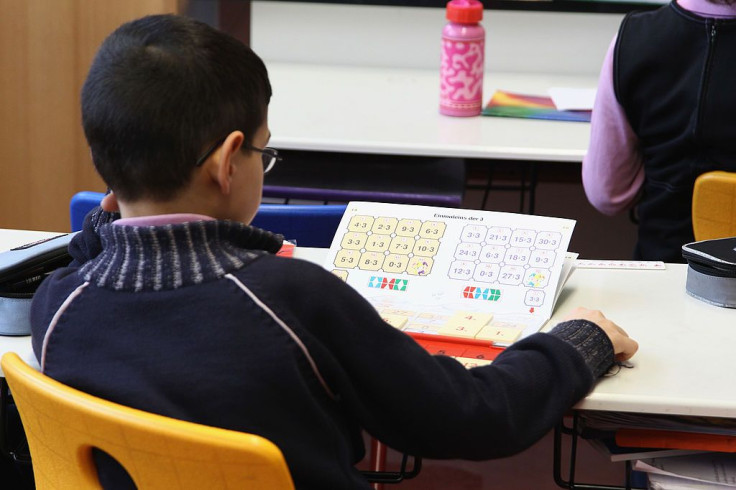A Chinese father publicly sobbed in the middle of the road because his child could not properly solve a math equation.
Yahoo! News said a resident of Kunshan in Jiangsu, eastern China, threw a tantrum down in the middle of a road. He begged authorities to arrest him after his daughter failed to solve a basic math problem.
The Chinese father, Gao, told a police officer that his daughter said 800 minus 700 equals 900. Gao claimed he did not want to return home because he was "so angry and helpless. After assisting him up and walking him to a nearby walkway, the police officer allegedly encouraged him to go home.
Netizens discussed what happened, South China Morning Post said. "I am sure this girl is his biological daughter. You can see his IQ is not high either," wrote one person on Weibo. Another user suggested that the father should visit the depression clinic.
Despite this situation, Business Insider said Chinese children frequently outperform other nations in international assessments. The report cited the Program for International Student Assessment for the claim.
However, some experts say that, like any standardized test, the PISA assessment largely assesses a student's ability to take the test instead of their knowledge.
"Little Soldiers: An American Boy, a Chinese School, and the Global Race to Achieve," by Lenora Chu, begins to discover the cultural factors that contribute to this disparity. It's not just about what occurs at school, she said.
Chu noted significant variations in her child's focus and discipline. Still, she also noticed cultural differences that impact how Chinese schools are managed and why their pupils perform so well on tests. Along with variables like highly qualified teachers and a focus on rote memory over deeper comprehension, the distinction boils down to a mindset that success is the consequence of hard work and not intrinsic aptitude.
Wall Streat Journal also claimed that studying math in some languages is easier. Frederick Leung, a math education professor at the University of Hong Kong, explained in a GoldThread report China's digit system made math fairly simple for students.
Early childhood education researchers discovered that the way a language communicates numbers impacts how quickly youngsters can calculate sums. Take, for example, the number 11. It has its own word in English, French, and Spanish—eleven, onze, and once.
Chinese pronounce the figure as "ten" and "one." The numerals are also monosyllabic, making them easier to remember. Arabic, Korean, and Japanese all use the same numbering system.
According to Leung, one of the advantages of this technique is that arithmetic may be taught through mnemonic aids such as songs. These mnemonic methods make it simpler to memorize multiplication tables, which serve as a foundation for higher-level math.

© 2025 Latin Times. All rights reserved. Do not reproduce without permission.




